Christmas Scams: Tips to Stay Safe During the Holiday Season
New scams are on the loose. Here's one to be careful of at Christmas time.
In this article...
- Scams are everywhere, in every industry
- Christmas is no exception!
- Here are the red flags to look out for
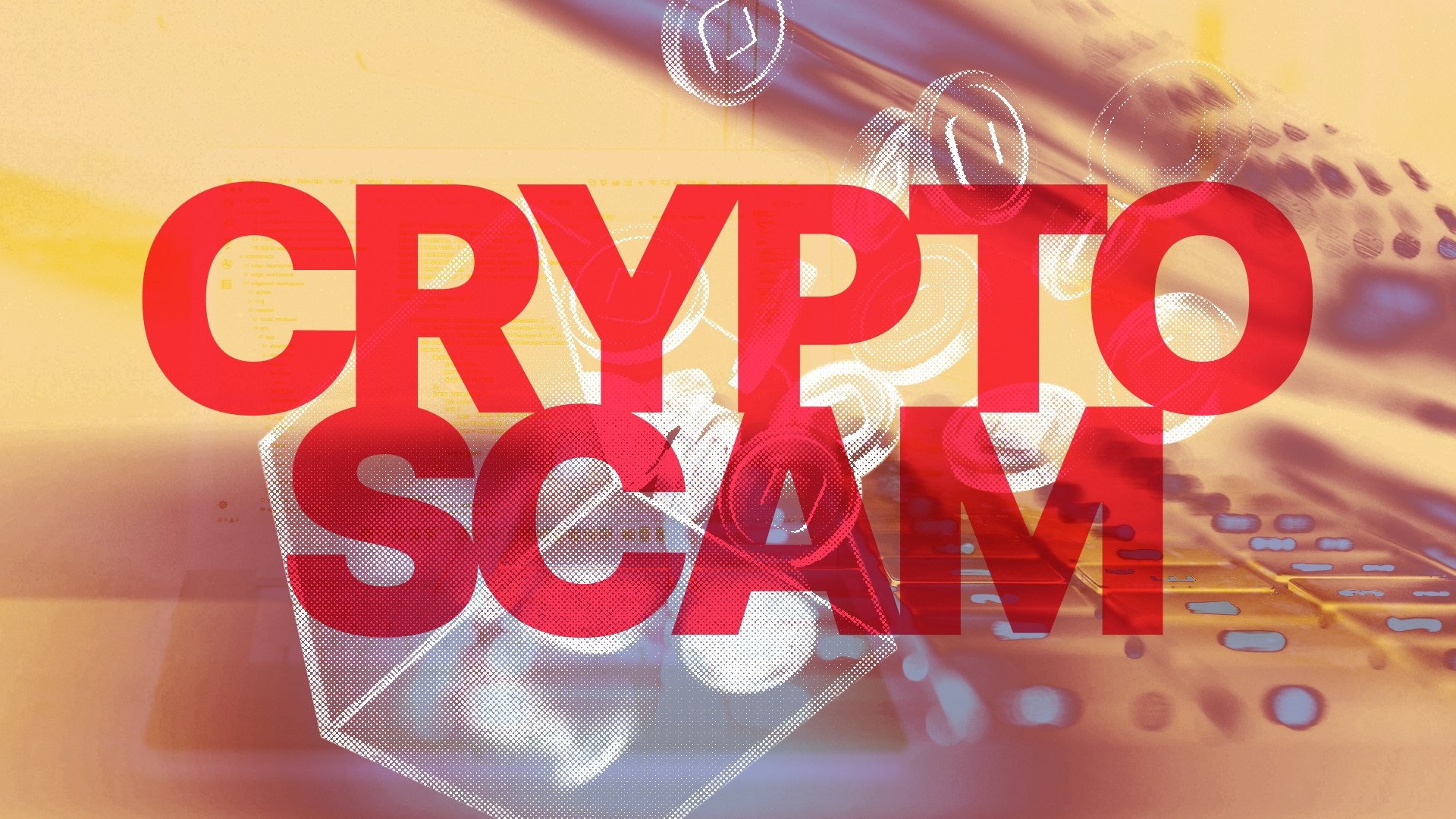
Scams are everywhere - and this holiday season is no different. We’re walking you through three different types of scams and how you can spot them and stay safe.
Shopping Scams
On Facebook, an ad shows pallets advertised as being filled with Amazon returns for a fraction of their actual value. It sounds amazing, and perfectly timed – it’s the holidays and it’s just what you needed. Amazon does have a return pallet program, but last we checked it’s only available in the US – and surely legitimate Amazon return pallets are never sold this cheap.

Scammers use these unrealistic prices to exploit people’s excitement about scoring a deal. This is unfortunately just one iteration of the same kind of scam. In the next ad we see, the promise of a "mystery box" containing expensive items like iPhones is another red flag.
Claims of exclusivity or limited-time offers, such as “only sell two weeks out of the year,” are tactics designed to pressure you into acting quickly without verifying the legitimacy of the seller.
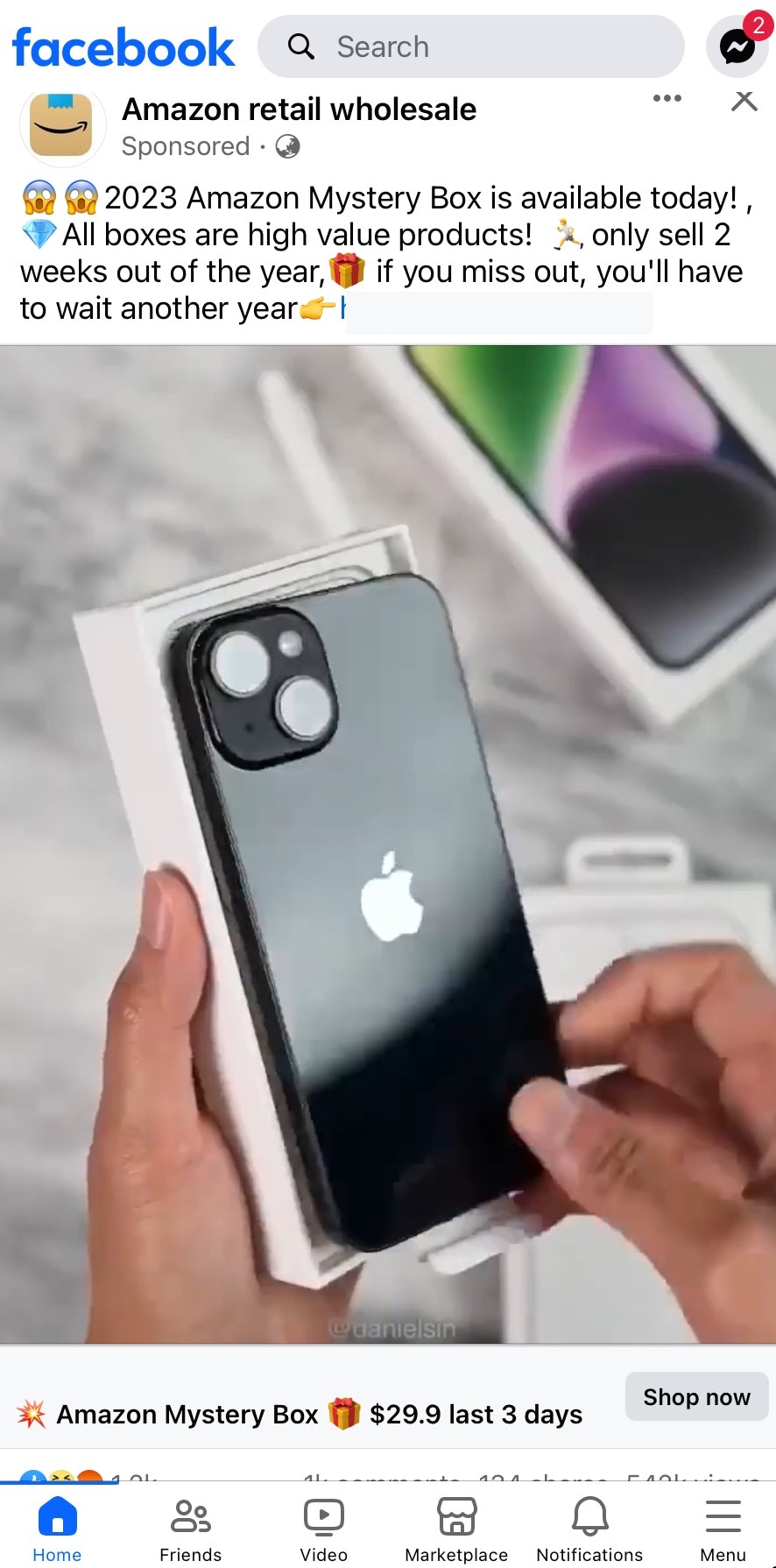
Here are some red flags to watch for
Check the URL / website name. Scammers often use fake company names or URLs that mimic reputable sites but subtly differ—like swapping letters or adding extra words. Sometimes they use websites that make no sense when you read the link out loud, or don’t seem like real words at all.
Be wary of deals that claim extreme urgency, like "only two weeks a year" or "last three days," as they rely on FOMO (fear of missing out) to pressure you into impulsive purchases.
Avoid links directing you to unsecured or sketchy websites where you’re asked to input sensitive payment information.
Does the deal make sense? If not, it’s too good to be true.
The above list doesn’t cover all possible scams and risks. Protect yourself by sticking to trusted marketplaces, researching companies, and remembering that true bargains don’t need to be rushed.
Delivery Scams
Delivery scams involve scammers sending text messages pretending to be reputable postal services, claiming a delivery failure and prompting recipients to click on a link to reschedule.
These links lead to fake, fraudulent websites that closely mimic the real postal websites, aiming to harvest personal and financial information. These messages are sent hoping that you might actually be expecting a real parcel to arrive and, in the stress of rescheduling the parcel, forget to check the website you enter your details into.
Several red flags can help identify these scams
Suspicious sender details: Messages originating from random or unfamiliar numbers. Poor language use: Texts containing unusual capitalisation or grammatical errors. Odd timing: Notifications received at unusual hours, such as early morning.
Inaccurate URLs: Links that do not match the official web addresses of the purported organisations.
Unexpected deliveries: Alerts about deliveries when no packages are anticipated.
The lists are not exhaustive measures and do not guarantee protection. By staying vigilant and recognising these warning signs, you can protect yourself from falling victim to this type of scam. If you want to learn more, you can read about CoinJar’s investigation into a “failed delivery” scam here.
Community trust bait scams
Scammers are becoming increasingly creative in how they exploit trust, especially in community Facebook groups. One rising scam involves compromised accounts posting comments on local posts about stolen items, such as a car, laptop, or other personal belongings.
These comments often appear helpful at first glance, saying something like, “You should talk to this person, they helped me get my item back.” While it doesn’t involve the usual promises of money recovery or investment returns, it’s just as deceptive and dangerous.
Here’s how it works
The scammer hijacks a legitimate Facebook account, often one belonging to a trusted community member, and uses it to post these misleading recommendations.
The goal is to trick victims into reaching out to a so-called “helper,” who is, in reality, part of the scam – probably the same person who compromised the Facebook account in the first place.
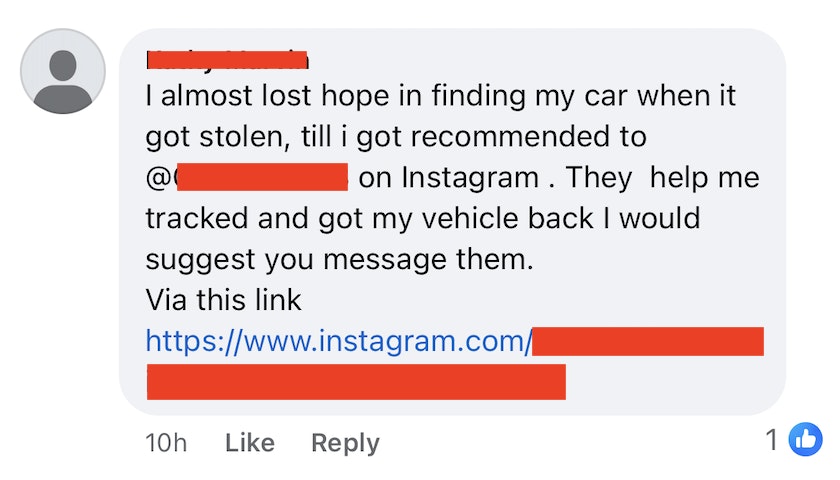
Once contact is made, the scammer may request sensitive information, charge upfront “fees” for their services, or even send malicious links. The entire scam preys on the sense of trust and goodwill fostered in community spaces. The scammer will only take your money and make excuses for their lack of results.
If you see comments like these in your local groups, take a moment to pause and question their legitimacy. You should also use the ‘report’ option on these comments to make sure the comments are reported to group administrators and removed or hidden to protect other group members.
In addition, you can report the commenter’s account or profile and their activity to most social media platforms for review.
What can I do to fight scams?
Stay alert/vigilant
Read our Knowledge Base on how to protect yourself from financial scams If you see something, say something.
Make a report to local scam authorities or social media platforms about suspicious or fraudulent activity.
Never make a rushed or pressured decision about your money.
Have open and honest conversations with friends and family members of all ages about financial scams – education and knowledge are the key to staying safe.

Suggested Articles
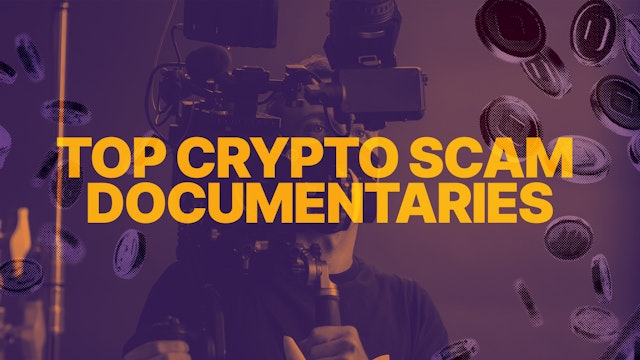
Top Documentaries To Watch to Increase Scam Awareness
Here are some documentaries about scams involving crypto you need to add to your to-do list. Read more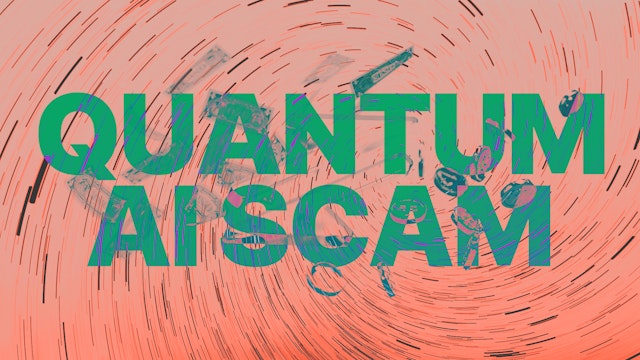
Unmasking the Quantum AI Scam – Here are the Tactics
The Quantum AI scam is on the rise. Here's what to look out for.Read more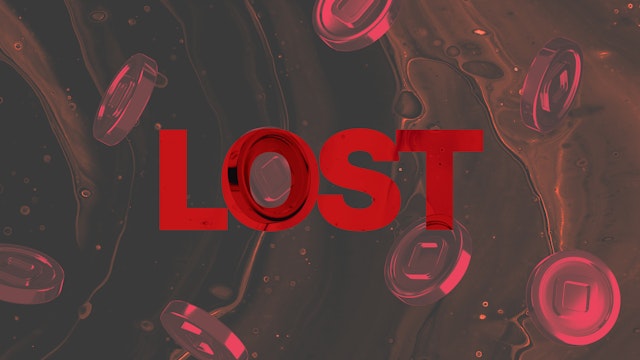
Scam Uses Popular Anime Characters to Steal Your Money or Crypto
Have you seen your favourite character in an ad online? It might not be a legitimate use of the image. Here are the red flags to look for.Read moreBrowse by topic
Standard Risk Warning: The above article is not to be read as investment, legal or tax advice and it takes no account of particular personal or market circumstances; all readers should seek independent investment advice before investing in cryptocurrencies.
The article is provided for general information and educational purposes only, no responsibility or liability is accepted for any errors of fact or omission expressed therein. Past performance is not a reliable indicator of future results. We use third party banking, safekeeping and payment providers, and the failure of any of these providers could also lead to a loss of your assets.
We recommend you obtain financial advice before making a decision to use your credit card to purchase cryptoassets or to invest in cryptoassets.
Capital Gains Tax may be payable on profits.
CoinJar's digital currency exchange services are operated in the UK by CoinJar UK Limited (company number 8905988), registered by the Financial Conduct Authority as a Cryptoasset Exchange Provider and Custodian Wallet Provider in the United Kingdom under the Money Laundering, Terrorist Financing and Transfer of Funds (Information on the Payer) Regulations 2017, as amended (Firm Reference No. 928767).
In the UK, it's legal to buy, hold, and trade crypto, however cryptocurrency is not regulated in the UK. It's vital to understand that once your money is in the crypto ecosystem, there are no rules to protect it, unlike with regular investments.
You should not expect to be protected if something goes wrong. So, if you make any crypto-related investments, you're unlikely to have recourse to the Financial Services Compensation Scheme (FSCS) or the Financial Ombudsman Service (FOS) if something goes wrong.
The performance of most cryptocurrency can be highly volatile, with their value dropping as quickly as it can rise. Past performance is not an indication of future results.
Remember: Don't invest unless you're prepared to lose all the money you invest. This is a high-risk investment and you should not expect to be protected if something goes wrong. Take 2 mins to learn more.
UK residents are required to complete an assessment to show they understand the risks associated with what crypto/investment they are about to buy, in accordance with local legislation. Additionally, they must wait for a 24-hour "cooling off" period, before their account is active, due to local regulations. If you use a credit card to buy cryptocurrency, you would be putting borrowed money at a risk of loss.
We recommend you obtain financial advice before making a decision to use your credit card to purchase cryptoassets or to invest in cryptoassets.
Your information is handled in accordance with CoinJar’s Privacy Policy.
Cryptoassets traded on CoinJar UK Limited are largely unregulated in the UK, and you are unable to access the Financial Service Compensation Scheme or the Financial Ombudsman Service.
We use third party banking, safekeeping and payment providers, and the failure of any of these providers could also lead to a loss of your assets.
We recommend you obtain financial advice before making a decision to use your credit card to purchase cryptoassets or to invest in cryptoassets. Capital Gains Tax may be payable on profits.
CoinJar’s digital currency exchange services are operated in the UK by CoinJar UK Limited (company number 8905988), registered by the Financial Conduct Authority as a Cryptoasset Exchange Provider and Custodian Wallet Provider in the United Kingdom under the Money Laundering, Terrorist Financing and Transfer of Funds (Information on the Payer) Regulations 2017, as amended (Firm Reference No. 928767).
Apple Pay and Apple Watch are trademarks of Apple Inc. Google Pay is a trademark of Google LLC.
This site is protected by reCAPTCHA and the Google Privacy Policy and Terms of Service apply.

